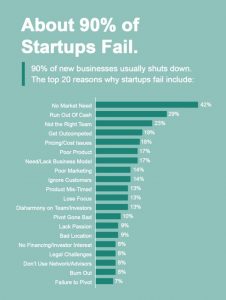 Obsessing over candidates’ direct work experience instead of their potential could be sabotaging your recruitment efforts. We’ve entered an era where more professionals are changing their career paths, and where the young generation makes up the majority of the labor force. Do Millennials have much “experience?” Probably not, at least in the context typical job postings intend. Yet many have highly needed technical skills, a solid education, motivation and driven attitudes. They also have practical experiences that shape and influence their potential contributions. The subject of experience is a topic we often take for granted. Perhaps we should rethink the idea that years translate to performance. And it may also be time to reconsider the very concept of experience.
Obsessing over candidates’ direct work experience instead of their potential could be sabotaging your recruitment efforts. We’ve entered an era where more professionals are changing their career paths, and where the young generation makes up the majority of the labor force. Do Millennials have much “experience?” Probably not, at least in the context typical job postings intend. Yet many have highly needed technical skills, a solid education, motivation and driven attitudes. They also have practical experiences that shape and influence their potential contributions. The subject of experience is a topic we often take for granted. Perhaps we should rethink the idea that years translate to performance. And it may also be time to reconsider the very concept of experience.
Why Look for Experience?
Mel Kleiman is well known in the workforce industry. He’s a noted speaker and author who specializes in refining the processes employers use to screen, select and retain workers. Recently, he posed an interesting hiring question in TLNT’s online publication: Why do job ads still predominantly focus on experience? In 95 percent of the online postings Kleiman observed, the hunt for experience remained the standout criteria — even for entry level positions.
The likely reason for this, Kleiman speculates, comes from the belief that experienced talent require less training. They hit the ground running and reduce onboarding time. They reach peak productivity sooner. That may be true, yet this perception ignores some fundamental attributes of the best candidates. It also relies heavily on presumptions. Here, Kleiman makes a really compelling argument:
“The problem with this assumption is that just because a person has done a certain type of work before doesn’t mean he or she is necessarily good at it or even likes doing it. Many people fall into jobs or a career path and, over time, become skilled at them. However, when you look at the top people in any trade or profession, what sets them apart is talent. Their innate ability or that internal motivation (attitude) that makes them what we call ‘a natural.’”
I find Kleiman’s discussion timely, particularly because it echoes the theme of Peter Thiel’s commencement address to the graduating class of Hamilton College. Thiel is the billionaire co-founder of PayPal and author of the bestselling business book, “Zero to One.” His advice to the new grads? Beware the hidden dangers of sticking to a career path.
Grounding our career aspirations in tradition and familiarity, Thiel explains, becomes a self-fulfilling prophecy that often leads to jobs “justified by nothing except constant repetition.” Eventually, feelings of powerless and stagnation take over. Thiel uses his own past to illustrate the point.
“Looking back at my ambition to become a lawyer, it looks less like a plan for the future and more like an alibi for the present. It was a way to explain to anyone who would ask — to my parents, to my peers, and most of all to myself — that there was no need to worry. I was perfectly on track. But it turned out in retrospect that my biggest problem was taking the track without thinking really hard about where it was going.”
Law was not Thiel’s true passion. He had bigger dreams — plans to change the world. When he and PayPal’s other co-founders first envisioned the company, the goal was to develop a more efficient digital currency to replace U.S. dollars. While that didn’t pan out as conceived, Thiel and his partners did launch a bold, disruptive enterprise that changed the world of global finance. In all likelihood, Thiel may have gone on to become a successful litigator had he followed his path as an attorney. Yet to paraphrase Mel Kleiman’s observations, “just because a person has done a certain type of work before doesn’t mean he or she even likes doing it.”
Direct Work Experience May Be Overrated
Dr. John Sullivan, a recognized HR leader, also suggests that relying heavily on a candidate’s direct work experience may be overrated in recruiting.
“Perhaps the best example of success without ‘direct experience’ is when firms select CEOs, most of whom have never held the title before,” Sullivan writes. “You need to look no further than Mark Zuckerberg, Steve Jobs, and Bill Gates to find individuals who have been wildly successful without an ideal education or previous direct experience. Firms like Southwest Airlines, Ritz-Carlton, and Zappos have had tremendous success by using a non-credential based approach known as ‘hire for attitude and train for skill.’”
The Millennials now taking over the workforce are teeming with enthusiasm for pursuing careers that provide growth opportunities. They actively seek out resources for continued skills education and training opportunities. Their flexibility and willingness to learn inspire positive attitudes that boost morale, while presenting a clean canvas on which to project the skills that hiring managers are hoping to develop in their workforces. Of course, plenty of experienced workers are also exploring new career avenues and learning different skills.
Sometimes an abundance of experience comes with an inflexibility toward change, or habits that might not be conducive to a new industry or business culture. Tenured talent can, even unintentionally, convey an attitude of burnout or all-knowingness. It’s easier to teach ideal behaviors to talent with a clean slate than force experienced workers to unlearn theirs. Tremendous business benefits await hiring managers who understand the value of recruiting for attitude and training for skills.
A lack of direct experience can be an asset in disguise. Without the fog of past experience, workers can approach challenges and obstacles with fresh outlooks. Capable talent without direct experience in a role often demonstrate a willingness to take risks, share unconventional insights and spur innovation. They also understand that a lack of experience requires them to prove their mettle in other ways across the enterprise. These individuals tend to question established practices, which can lead to the implementation of improved methodologies, strategies, approaches and concepts. They’re also more versatile and likely to devote their energies to building relationships, teams and collaborative problem solving techniques.
Outside experience drives cultural and thought diversity in the workforce. It’s been proven time and again that a diverse workforce produces positive impacts on any organization. From a business stance, a diverse workforce — in the sense of practical experiences and backgrounds — yields greater levels of creativity and perspective that inform product design, sales strategies, marketing campaigns, service offerings and direction. Additionally, workers without a lot of direct experience are more likely to shake things up. Stirring the pot in an environment that has been operating along the status quo for a long time prevents stagnation and fosters growth.
It’s easier and cheaper to hire greener talent. Competition in the labor market, particularly in context of ongoing skills shortages, is tight. Less familiar companies don’t have prominent consumer or employment brands to fall back on when recruiting highly credentialed talent. Even with an aggressive passive recruiting campaign, the time and effort to source top candidates can be extensive. And when in-demand workers are courted, they will be seeking top-dollar compensation structures, which may be out of a smaller firm’s grasp. Newer workers, or those seeking a shift in direction, are looking to build their credentials. They will accept jobs for less pay at companies still developing their brands.
Even better, greener talent generally remain at organizations longer than their more seasoned colleagues. Millennials, for example, thrive on opportunity, recognition and the chance to participate in the growth of the companies they serve. When treated well, and placed in best fit environments, their loyalty is unrivaled by older generations.
You may find your next superstar, not a fading star. A certain irony comes with higher tenured professionals. If you’re not knowingly hiring a superstar, then you’ve probably figured out that this worker, albeit well qualified, is not going to be that superstar. However, the skills and capabilities of new talent remain relatively unknown. That means unlimited possibility. As Sullivan notes, “When you hire someone with no direct experience, there is a reasonable chance that you may be actually acquiring a ‘diamond in the rough’ who may quickly become a superstar.” In the realm of professional sports, for instance, this is fairly common: lower tier draft picks have gone on to impress coaches, wow fans and bring home victories.
The Experiences That Matter Most
Direct work experience may not be the perfect gauge for scouting the best talent. The real-life experiences of candidates are what infuse their attitudes, mold their aspirations and inspire the passions that drive them to develop their skills.
Too often, we see hiring decisions based on matching hard skills to keywords in job descriptions, while disregarding vital soft skills that establish potential. What are soft skills? They’re personality characteristics and interpersonal aptitudes. Although they can’t typically be taught, they can be refined and nurtured. We’re talking about attitudes and inherent abilities in people skills, communication, collaboration, teamwork and leadership.
Hard skills, such as expertise in accounting or software engineering, are transferrable. Even when perfected, they diminish with age; however, they’re also easily relearned. A worker with experience might be an expert today in his or her field, yet in two years that professional will need to go back and hone those functional skills or expand on them. Soft skills, on the other hand, follow us throughout our lives. They define who we are, how we interact, how we contribute and how we integrate to a company’s culture.
Concentrating too intensely on direct work experience ignores other experiences that inform the behaviors of the best talent. If employers don’t give these workers a chance, they’ll really never know what they could be missing. The most successful people, as LinkedIn influencer Jeff Haden notes, are those who “relentlessly seek new experiences.” Recruiters and hiring managers would be wise to do the same with their candidates.
Business & Finance Articles on Business 2 Community(49)
Report Post





